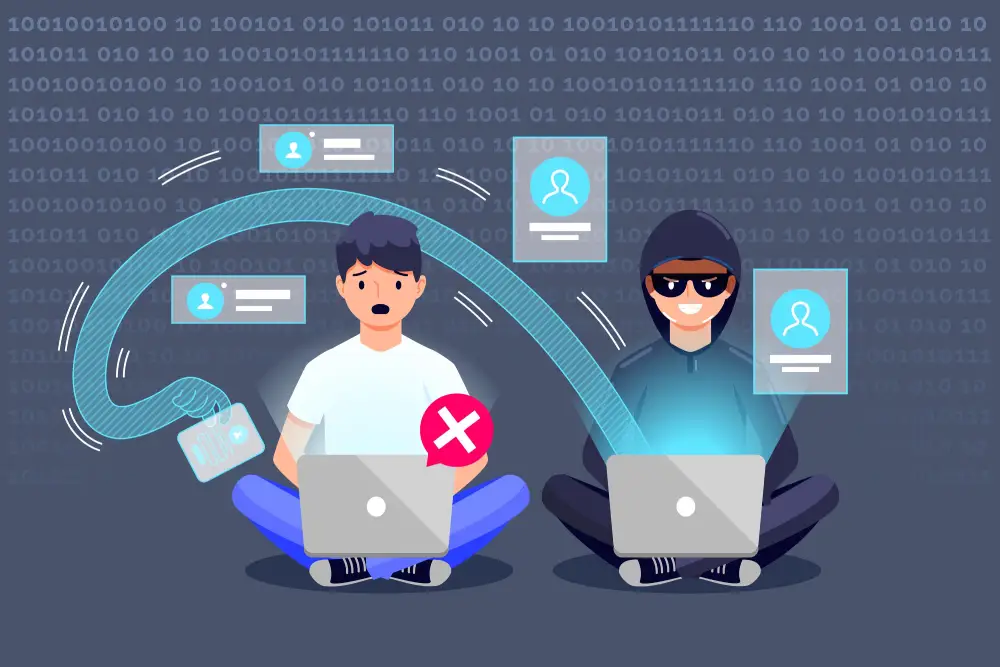
Once upon a time, SME cybersecurity in Ireland was simple—install antivirus, run the occasional scan, and get on with business.
Back then, that was enough to keep your systems safe. Job done.
Fast forward to today, and things aren’t so simple anymore. Cyber threats have evolved—dramatically. And while many businesses have changed how they work, too many are still relying on outdated security strategies that belong in 2010.
If you think antivirus is enough to protect your SME, it’s time for a reality check.
The Cyber Threat Landscape Has Changed
Cybercriminals no longer just send viruses for fun. Today, they run sophisticated criminal enterprises. Their goal? To make money. And SMEs are in the firing line.
Hiscox reports that 41% of Irish SMEs experienced at least one cyberattack in the past year, with the average cost of recovery now exceeding €10,000.
And it’s not just the financial cost:
- Customer data could be exposed
- Ransomware could lock down your entire business
- You could face legal action or GDPR fines
- Your reputation could take a hit you can’t afford
Why SMEs Are Easy Targets
You might think cybercriminals focus on big corporations. That used to be true—but not anymore.
Hackers now go after small businesses because:
- SMEs often have weaker security
- They may lack dedicated IT staff
- They might rely on old systems
- They’re more likely to fall for phishing scams
In fact, according to the National Cyber Security Centre of Ireland, 60% of cyberattacks in Ireland target SMEs.
Why? Because criminals know it’s easier to hack 100 small businesses than one large corporation.
Phishing Is the Biggest Threat (And Antivirus Won’t Stop It)
Phishing is when scammers send realistic-looking emails to trick your staff into clicking the wrong link, entering their password, or downloading a file laced with malware.
It’s the number one cyber threat facing Irish SMEs.
The scary part? Most phishing attacks don’t involve viruses at all—which means antivirus software won’t catch them.
All it takes is one distracted employee clicking the wrong link, and suddenly:
- Hackers have access to your email
- They steal sensitive customer information
- They lock your files with ransomware
- They send fake invoices to your clients
Remote Work Makes It Worse
With flexible and hybrid working now the norm, cybersecurity risks are even higher.
Your team is no longer working behind the office firewall. They’re logging in from:
- Home Wi-Fi
- Coffee shops
- Personal devices
- Shared laptops
That means your data is traveling across networks you don’t control—and if you’re relying on antivirus alone, you’re taking a massive risk.
Why GDPR Makes Cybersecurity Even More Critical
Let’s not forget about GDPR.
If you handle customer data (and let’s be honest—who doesn’t?), you’re legally responsible for keeping it secure. A data breach doesn’t just mean downtime—it could mean:
- Fines from the Data Protection Commissioner
- Public disclosure of the breach
- Loss of customer trust
- Damage to your brand’s reputation
GDPR compliance requires more than antivirus. It requires a proactive security strategy.
The Real Costs of a Cyberattack
Cyberattacks don’t just cause technical problems—they cause business problems.
Here’s what you could face after a breach:
- Lost sales due to downtime
- Emergency IT repair costs
- Paying ransoms (which is never recommended, but sometimes businesses feel forced to)
- Legal costs if customer data is exposed
- Insurance premiums going up
- Reputational damage that lingers for years
According to PwC, 60% of SMEs that suffer a major cyberattack go out of business within six months. It’s that serious.
So, What Does Real Cybersecurity Look Like Today?
It’s about layers—not just antivirus.
Modern cybersecurity for SMEs includes:
- Phishing protection, to stop scam emails from reaching your team
- Multi-factor authentication, so stolen passwords aren’t enough to get in
- Secure cloud backups, so you can recover quickly if the worst happens
- Remote device management, so you can lock down lost laptops or phones
- Ongoing staff training, because people are the first line of defence
- Real-time threat monitoring, to catch issues before they become disasters
Conclusion: Antivirus Isn’t Enough—It’s Time to Modernise Your Security
Cyber threats are evolving, and Irish SMEs are in the firing line.
If your current security plan is “install antivirus and hope for the best,” you’re leaving your business exposed.
At Viatec, we help SMEs build real protection into their daily operations. No jargon, no scare tactics—just practical, modern cybersecurity that works for how you do business today.
Let’s chat about how we can help secure your SME—before the hackers get there first.

